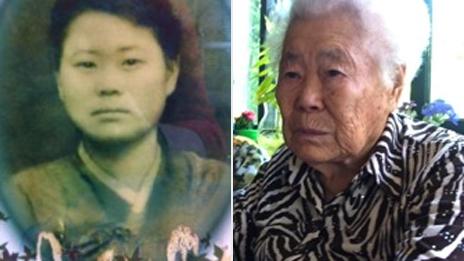Japan and Korea to step up talks on 'comfort women'
- Published
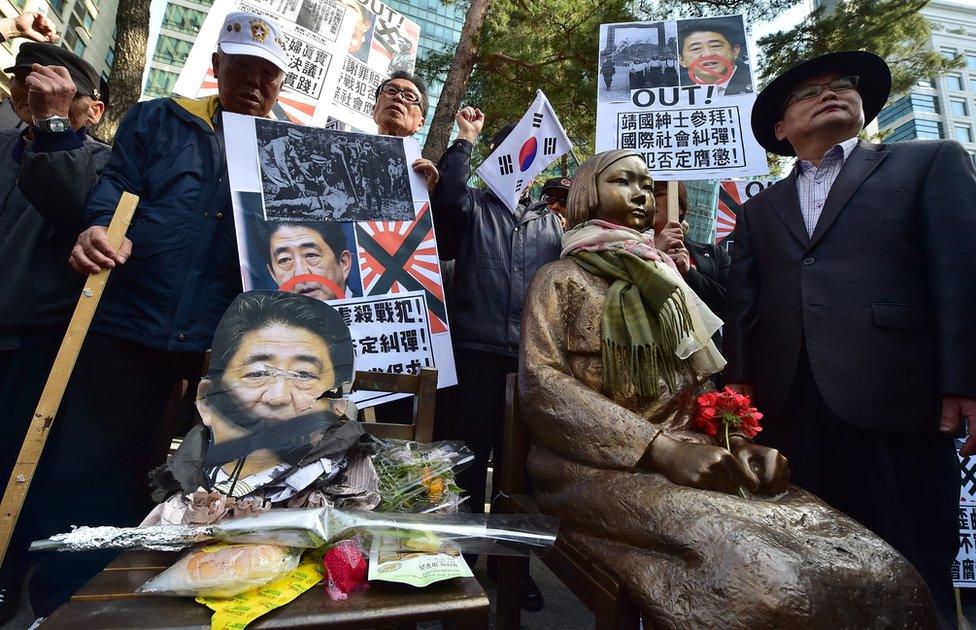
South Korean women and their supporters often hold protests at the Japanese embassy in Seoul
Japan and South Korea have agreed to speed up talks to resolve a row about Korean women forced to work in Japanese brothels during World War Two.
The issue of so-called "comfort women" has hampered ties in recent years.
The announcement came after the first formal meeting in three years between Korean Prime Minister Park Geun-hye and Japan's Shinzo Abe.
Up to 200,000 women are estimated to have been sexually enslaved by Japan during WW2, many of them Korean.
Other women came from China, the Philippines, Indonesia and Taiwan.
Japan has apologised in the past for the "pain and suffering" of the women, but South Korea wants a stronger apology and compensation for victims.
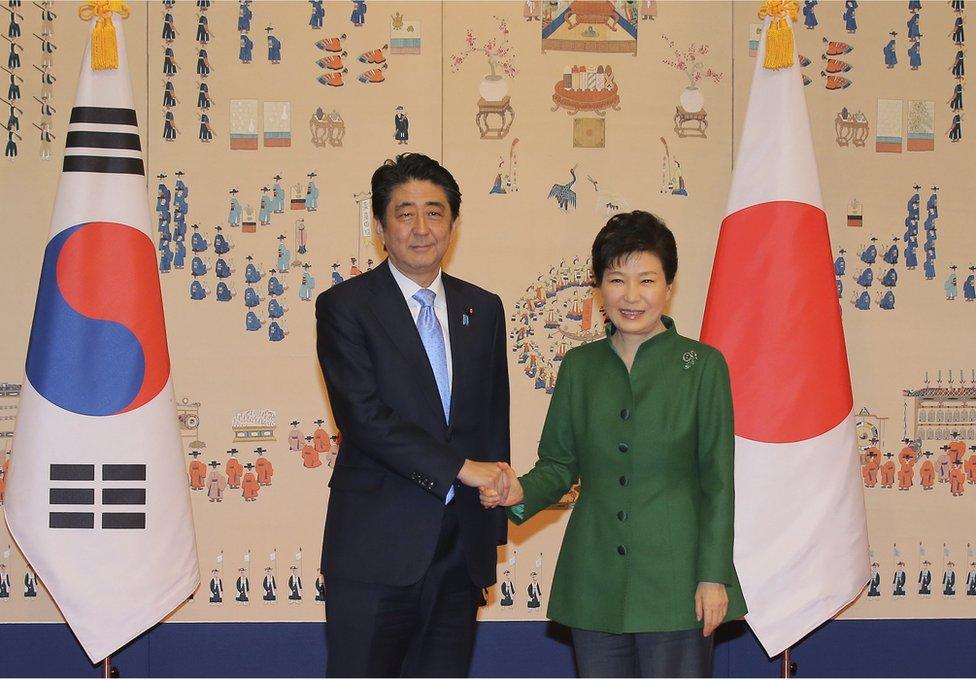
The summit marks the first time Mr Abe and Ms Park, who have previously met informally or at international summits, are holding a formal two-way meeting
'Heal the wounds'
Ms Park said the issue of "comfort women" was "the biggest obstacle" to South Korea and Japan's effort to improve their relationship.
"She stressed that the issue must be quickly settled in a way that our people can accept," an adviser quoted her as saying.
Ms Park had earlier said she hoped the summit could "heal the wounds of the past".
Mr Abe, who is in Seoul for the meeting, told reporters the two countries "should not leave behind difficulties for future generations" in building a co-operative relationship.
Neither leader gave further details on planned negotiations.
The issue of forced prostitution has remained highly controversial in South Korea, and the few "comfort women" who are still alive have been campaigning for years for compensation and a stronger apology.
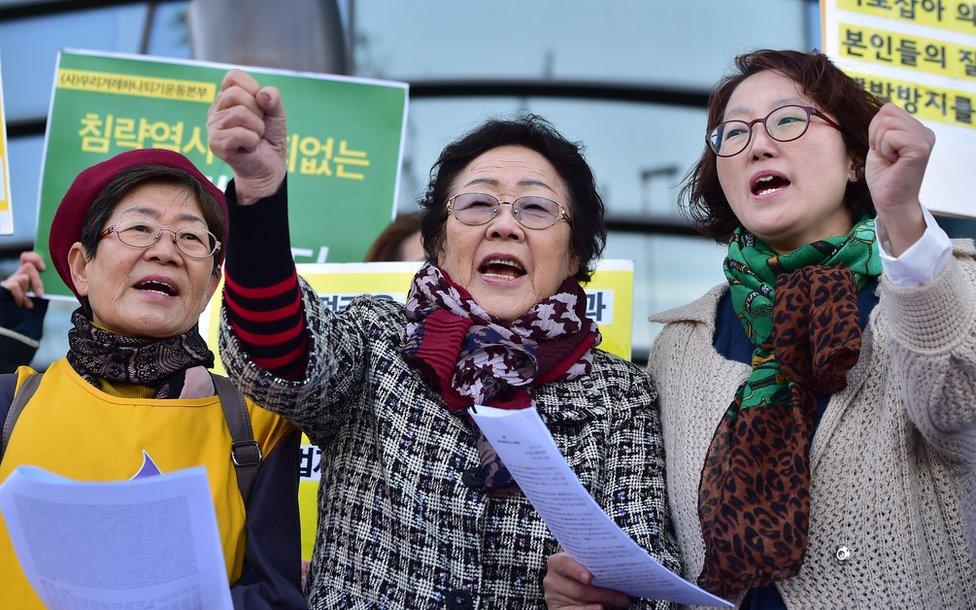
Former South Korean comfort women such as Lee Yong-soo (centre) demonstrated again outside Seoul's Japanese embassy on Friday
- Published1 November 2015
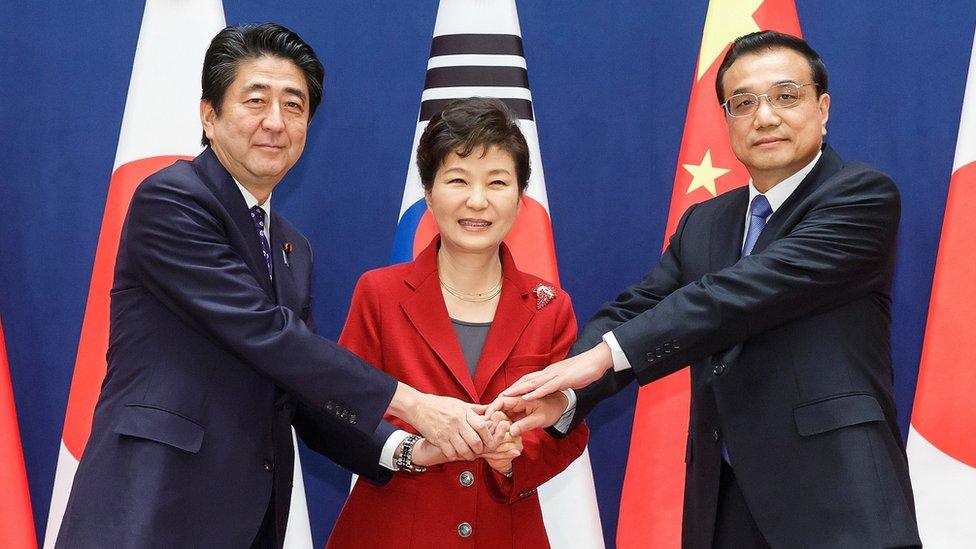
- Published3 August 2015
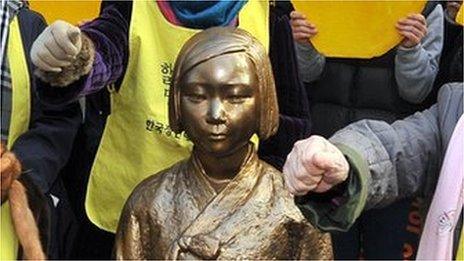
- Published28 April 2015
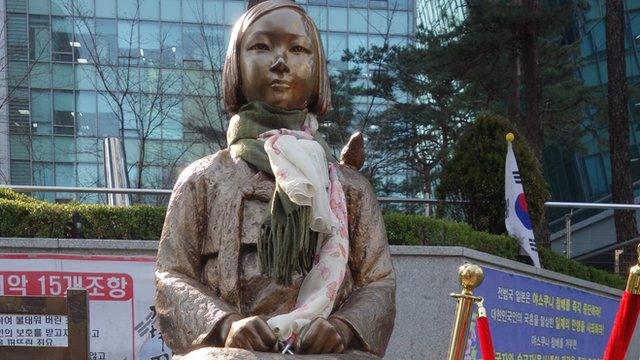
- Published29 May 2013
